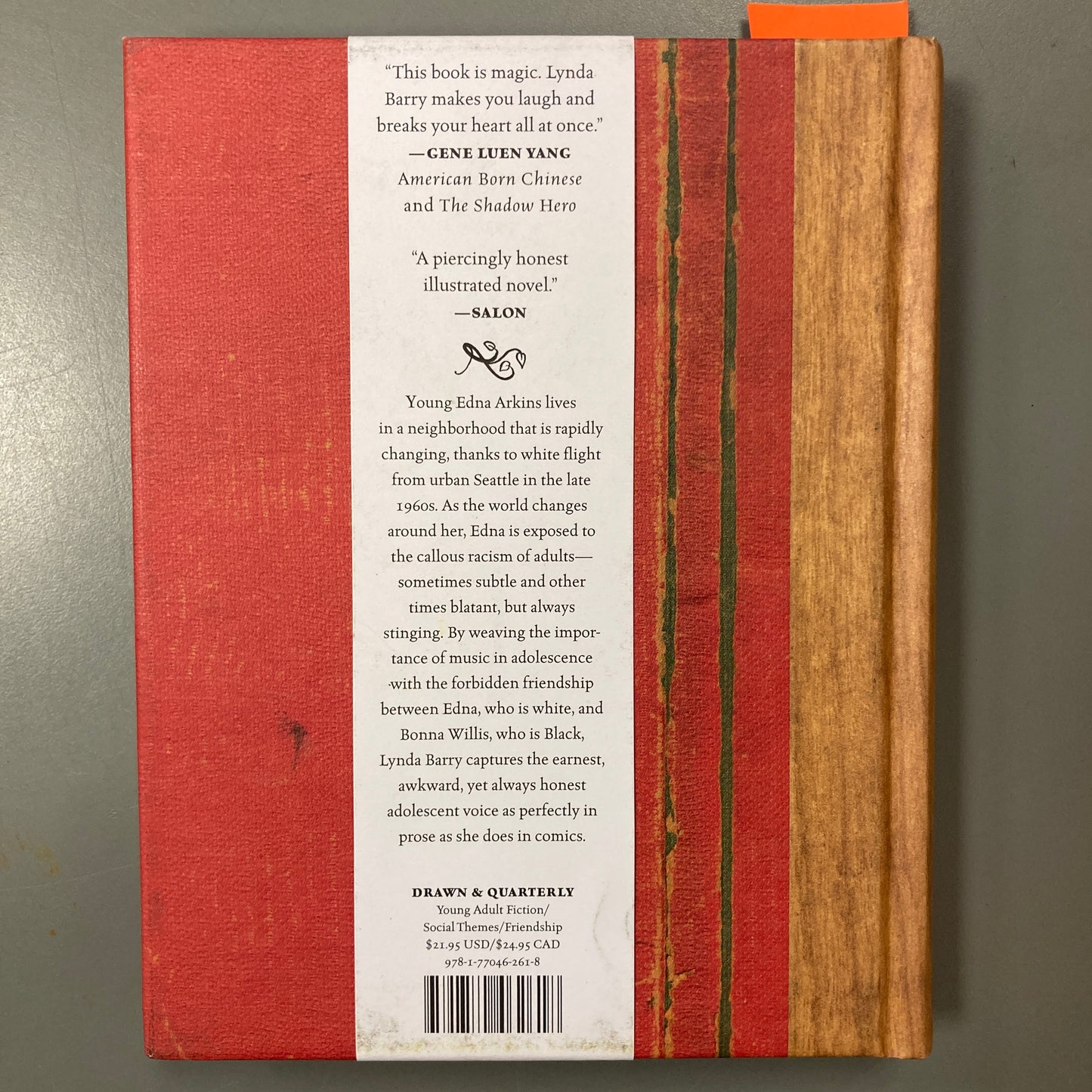The Good Times are Killing Me
The Good Times are Killing Me
Couldn't load pickup availability
*This is not a comic! But Lynda is a comics master.
By Lynda Barry. Published by Drawn & Quarterly.
Hardcover, 184 pages, Prose w/B&W Illustrations and Colour Comic Epilogue, 2017 (originally published 1988)
Lynda Barry’s classic heartbreaking and heartwarming coming of age novella back in print
Young Edna Arkins lives in a neighborhood that is rapidly changing, thanks to white flight from urban Seattle in the late 1960s. As the world changes around her, Edna is exposed to the callous racism of adults—sometimes subtle and other times blatant, but always stinging. By weaving the importance of music in adolescence with the forbidden friendship between Edna, who is white, and Bonna Willis, who is Black, Lynda Barry captures the earnest, awkward, yet always honest adolescent voice as perfectly in prose as she does in comics.
"The story of two young people—Edna (white) and Bonna (African-American)—coming to terms with the inequalities of race and class... Written in the 1980s and set in the 1970s, the book remains as relevant as ever in the present."–Rookie
"This book is magic. Lynda Barry makes you laugh and breaks your heart all at once."–Gene Luen Yang
"The beautiful reissue of Lynda Barry’s underrated autobiographical novel The Good Times Are Killing Me, about race and falling in love with records, gets 50 pages of new art, much of it Barry’s folk-art-ish paintings of music pioneers."–Chicago Tribune
"A quick but heartfelt novel about race, class, and poverty in 1970s America, with each vignette connected by the protagonist's love of and connection to music."–Buzzfeed Best Books of 2017
“Barry conveys the anguish and confusion of youth discovering that society is riddled with prejudice, and her light touch is balanced by respect for her characters and their problems.”–Publishers Weekly
"Absorbing and deceptively simple, Lynda Barry’s 1988 illustrated novella is back in a new edition, and it feels like the right time. Difficult conversations about racial divides are still happening, so this story of a young girl’s friendship with a black neighbour is affecting and relevant...With sparse punctuation and breathless, run-on sentences, the story is presented with a naïve voice in a powerful way."–Toronto Star





